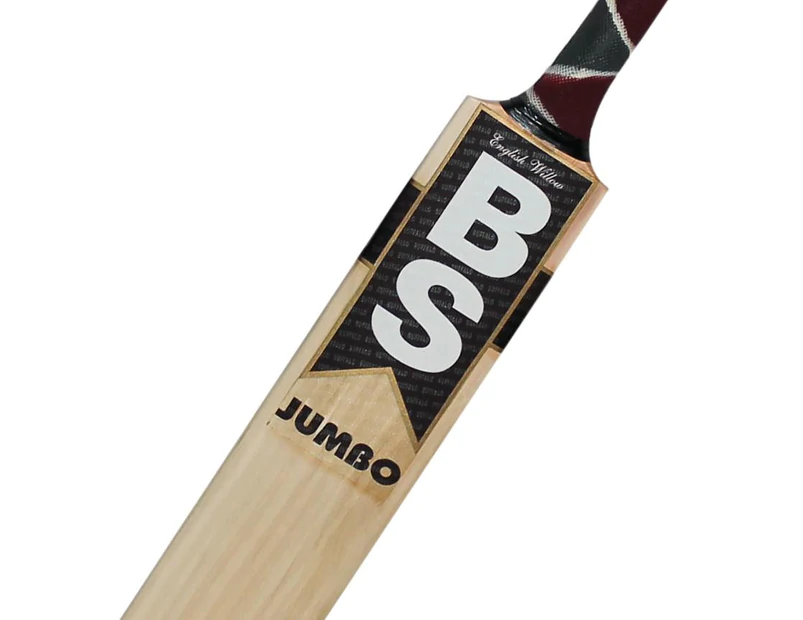
Cricket, often described as a religion in cricket-loving nations like Australia, India, Pakistan, and England is a sport where the choice of equipment can significantly impact a player’s performance. Among all the gear that a cricketer uses, the cricket bat holds a special place. When it comes to cricket bats, the two primary choices are English Willow and Kashmir Willow. In this blog, we will delve into the differences between these two types of cricket bats to help you make an informed decision on which one to buy.
Understanding the Willow Types
To appreciate the differences between Kashmir Willow and English Willow Cricket Bats, it’s essential to understand the characteristics of the wood itself.
English Willow: The Premium Choice
English Willow, scientifically known as Salix Alba Caerulea, is considered the gold standard for cricket bat making. It is sourced from specific regions, including England, where the climate and soil conditions are conducive to producing high-quality cricket bat willow. Here are the key attributes of English Willow:
Superior Performance: English Willow is known for its exceptional performance on the field. The wood’s grain structure allows for better power transfer, making it the preferred choice for professional cricketers.
Lightweight: English Willow bats tend to be lighter than Kashmir Willow bats, which allows players to have faster bat speed, better control, and maneuverability.
Expensive: Due to its superior quality and performance, English Willow cricket bats are more expensive than their Kashmir Willow counterparts. This makes them a choice primarily for serious cricketers and professionals.
Limited Availability: Since English Willow is sourced from specific regions, there is a limited supply of high-grade willow, further contributing to its higher cost.
Knocking-In Required: English Willow bats require careful knocking-in to reach their full potential. This process involves hitting the bat with a mallet to strengthen the wood and prevent damage during play.
Kashmir Willow: The Affordable Alternative
Kashmir Willow, derived from the Salix Alba Caerulea variety grown in the Kashmir region of India, is a more affordable alternative to English Willow. It offers a good balance between performance and cost, making it popular among amateur and club-level cricketers. Here’s what you need to know about Kashmir Willow Cricket Bats:
Affordable: Kashmir Willow bats are significantly cheaper than their English Willow counterparts, making them accessible to a broader range of players.
Decent Performance: While they may not provide the same level of performance as English Willow bats, high-quality Kashmir Willow bats can still perform well, especially in shorter formats of the game.
Heavier: Kashmir Willow bats are generally heavier, which can suit players who prefer a more substantial bat for power hitting.
Robustness: The Kashmir Willow is a harder and denser wood compared to English Willow, which makes these bats more durable and less susceptible to damage from mishits.
No Knocking-In Required: Unlike English Willow bats, Kashmir Willow cricket bats do not require extensive knocking-in. They are ready to use straight out of the box, although a light knocking-in process is still recommended.
Choosing the Right Bat for You
The choice between a Kashmir Willow and English Willow cricket bat ultimately depends on your playing level, budget, and personal preferences. Here are some factors to consider when making your decision:
Skill Level: If you’re a professional or serious cricketer, investing in an English Willow bat is a logical choice due to its superior performance. On the other hand, if you’re a beginner or play cricket casually, a Kashmir Willow bat should suffice.
Budget: English Willow bats can be significantly more expensive. Consider your budget when making a decision. Keep in mind that, as a beginner, you may want to allocate funds to other gear like protective equipment and shoes.
Playing Style: Think about your playing style. If you’re a power hitter who relies on big shots, a heavier Kashmir Willow cricket bat might suit you. If you prioritize timing and precision, an English Willow bat’s lighter weight and superior performance might be a better fit.
Local Conditions: Consider the playing conditions in your region. In places with bouncy pitches and fast bowlers, a Kashmir Willow bat’s robustness can be an advantage.
Future Prospects: If you’re a young player with aspirations of playing at a higher level, it might be worth investing in an English Willow bat as you progress in your cricketing journey.
In Conclusion
In the debate of Kashmir Willow vs. English Willow cricket bats, there is no one-size-fits-all answer. The right choice depends on your skill level, budget, playing style, and local conditions. Both types of bats have their merits and are capable of delivering great performances on the cricket field.
If you’re a professional or serious cricketer looking for that competitive edge and have the budget to match, English Willow bats are the way to go. On the other hand, if you’re a beginner or casual player seeking an affordable and durable option, Kashmir Willow bats provide an excellent balance between performance and cost.
Ultimately, your cricket bat is an extension of your skills and preferences as a player. So, whether you choose English Willow or Kashmir Willow, remember that it’s not just a piece of wood; it’s a reflection of your passion for the game. Make your choice wisely, take good care of your bat, and go out there and enjoy every moment on the cricket field.

